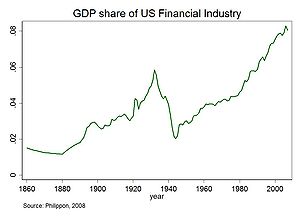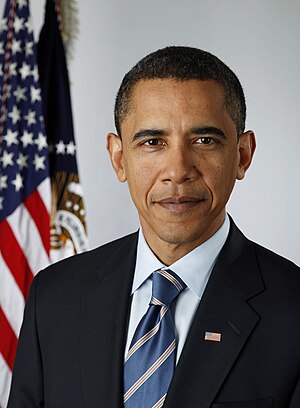
Image by SS&SS via Flickr
When I argue that the American Business Model is fundamentally flawed, I don’t wish to imply that America does not possess incredible strengths. Instead, I’m arguing that a flawed business model means that we don’t know how to use them properly; and, above all, we don’t adequately respect our greatest single resource which is the American people.
Hard to over-emphasize the importance of the next point: It concerns trust, the basis of all human co-operative activity. Few things are more important.
A major reason for this inability to make optimum use of the resources at our disposal is a pervasive lack of trust stemming from a long history of exploitation and greed run amuck. That, in turn, has led to excessive politicization which has the effect of being self-canceling at the expense of a vast amount of human effort. Way too many aspects of American life – like the judiciary and education – are politicized to no purpose. And, as a byproduct, are corrupt.
But assets are there nonetheless; so let me explore some of them.
1. We have a generally hard-working and resourceful population which is large enough to constitute an extraordinary internal market. Further, our demographics are favorable compared to many of our international competitors. Thanks to our immigration policies (imperfect though they are) our population is constantly being refreshed.
Unfortunately, we are poor at optimizing our human resources. Educational problems apart, whereas Europe mainly fosters cooperation between management and labor – and enshrines it into law - U.S. management remains authoritarian, and hostile to labor (which is one of the driving forces behind outsourcing); and the law is generally biased towards capital and management. The end result is a significant land pervasive lack of trust which has a profound effect on both productivity and quality of life. Our system also seems to actively encourage the expansion of an underclass as a way of beating down the price of labor, and, as a consequence – though there are other reasons as well - the diminishing of a well paid Middle Class. Meanwhile the Rich and Special Interests are grabbing all the marbles. That is not a sustainable situation.
2. Although our K-12 educational system leaves much to be desired, the basics are in place and are capable of vast improvement. Further, we already know how to make such improvements.
The above is true. Nonetheless, a combination of vested interests, politicization, ignorance, and inertia, seems to block substantive educational reform. An additional factor is that our consumer culture, heavily shaped by our media and commercial forces, is so dominant; and so effective at dumbing us down. The home apart, schools are not the only source of education. Culture has a major influence. Overall, our failure to optimize our human resources – both in educational terms and thereafter in work - represents our greatest strategic weakness as a nation.
3. Our best universities are the best in the world, and also have a  formidable track record when it comes to fostering innovation. In addition., we have a college system which, at its best, is extremely effective.
formidable track record when it comes to fostering innovation. In addition., we have a college system which, at its best, is extremely effective.
There are several issues here. Firstly, although our best Third Level facilities are excellent, many others are not. Secondly, it is highly debatable whether launching most of our children with a major debt burden works to our best advantage – especially when jobs are in short supply. And, thirdly we seem to lack the kind of comprehensive training schemes in technical areas which produce the highly trained workers which make, for instance, the Germans and the Swiss so successful in international export markets. Further, we have a tendency to place far too much importance on credentialing at the expense of education. This is a form of qualification inflation which shuts many competent people out of jobs they could do easily; and which does not serve us well.
4. We have world class expertise in a large number of sectors; and dominate in many.
While this is a justifiable source of pride, the worrying fact is that we have been losing ground in sector after sector. A recent example is solar power, but there are many others including strategic areas like aircraft manufacture, aerospace and machine tools. There are a variety of reasons for this including the exporting of much of our manufacturing base (including vital technological expertise) by U.S. corporations; an excessive focus on short-term profits; a failure to invest adequately in research; and the rise of competitors such as China and India. Further, we continue to refuse to adopt any kind of national plan despite the fact that our competition have shown that such planning can work. Finally, we are faced with the fact that many of our largest corporations now consider themselves global entities, and do not have the National Interest at heart. That has all kinds of implications we haven’t thought through adequately.
5. We have marvelous natural resources such as coal, oil, natural gas, minerals, rare earths, and much more besides.
Yes, we do, but it is a regrettable fact that having natural resources can have several disadvantages as well. Firstly, extracting such resources can do terrible things to the environment; and often does. Secondly, there is a tendency to become complacent and not to invest in more environmentally friendly approaches. And thirdly, natural resources such as coal, oil, and gas in particular have a habit of fostering corruption. In contrast, it is noteworthy that many countries who have few natural resources – such as Japan or Switzerland or Israel – are forced to use their ingenuity, and do surprisingly well. It’s counter-intuitive, but it’s true that natural resources can be a mixed blessing; or worse.
6. We have a vast, beautiful, and bountiful land.
We are much blessed in this regard, but we have also managed to pollute just about every square inch of it (literally); and much of the the surrounding oceans into the bargain. And we have also degraded much of our top soil, and contaminated much of our drinking water. Beyond that, we have allowed far too much of it to fall into the hands of a few, as opposed to being available to most of us. Private property is a fine thing; but, like anything, it can be carried to excess.
7. We are the most powerful country, militarily, in the world.
The trouble with having the most powerful military is that there is a great temptation to use it unnecessarily – especially now that Congress has abdicated its sole constitutional authority to declare war. Further, such a situation has brought with it a vast – and deeply corrupt -Military Industrial Congressional Complex which is focused on driving up the amount we spend on defense even where it is militarily unnecessary. Currently, we have forces in most countries in the world, and are spending more on National Security that the rest of the world put together. That makes no sense. We need strong defense forces but National Security should not just be concerned with military matters. It relates to the general wellbeing of Americans as well, and includes such things as health care and the prevention of poverty and hunger. Right now, we are spending way too much on the military, and not nearly enough on the American people, and re-building this country. Contrary to what many argue, we do have the resources, but our politicians are repeatedly making the wrong choices. And, as is normal these days, they are not consulting us.
8. We have a highly sophisticated, globally dominant, financial sector.
 The Financial Sector was touted for years as being a superior replacement for manufacturing as a source of wealth creation. Centralization of this sector was advocated as being essential in the interests of efficiency. The results - as we have switched from an investment approach to banking to speculation - have been disastrous. Meanwhile, we have run down our manufacturing base, and left our small business sector under-financed. A small number of people have made a great deal of money out of financialization, but the country, as a whole has been seriously damaged. Worse still, the financial sector has had to be bailed out – yet again – by the taxpayer; there has been no accountability; and Wall Street has not changed its ways. This means yet another financial crisis is virtually certain. A further problem is that centralized finance tends to mean centralized Big Business which also means de facto monopolies in most market sectors. A byproduct is that local innovation is suppressed and small business is under-funded. That, in turn, means fewer jobs. We are currently experiencing the results of such developments and they are not pleasant. Nor are our future prospects without significant change.
The Financial Sector was touted for years as being a superior replacement for manufacturing as a source of wealth creation. Centralization of this sector was advocated as being essential in the interests of efficiency. The results - as we have switched from an investment approach to banking to speculation - have been disastrous. Meanwhile, we have run down our manufacturing base, and left our small business sector under-financed. A small number of people have made a great deal of money out of financialization, but the country, as a whole has been seriously damaged. Worse still, the financial sector has had to be bailed out – yet again – by the taxpayer; there has been no accountability; and Wall Street has not changed its ways. This means yet another financial crisis is virtually certain. A further problem is that centralized finance tends to mean centralized Big Business which also means de facto monopolies in most market sectors. A byproduct is that local innovation is suppressed and small business is under-funded. That, in turn, means fewer jobs. We are currently experiencing the results of such developments and they are not pleasant. Nor are our future prospects without significant change.
9. We symbolize freedom to the rest of the world.
This is a profoundly American notion, but it is highly questionable as to whether it is as true as it once was in the immediate post-war years. Partly it has to do with the fact that we have invaded, or otherwise interfered with, other countries rather too often. Partly, it is because more and more people are becoming aware that freedom in the U.S. is excessively dependent on your bank balance; and is circumscribed in many other ways as well. Still, for all our faults, we have much to be proud of in this area.
Do we have have other things to be proud of? Of course we do – and it is a long list - but my key point is that though we have superb resources, we are careless with them; and if the U.S. is going to be changed the way many think it should be, we’ll have to do better in that regard.
We have to change. The status quo is failing far too many Americans. Most of us in fact.



 President Obama has shown no such leadership. There have been no major speeches focusing the nation on the threat emanating from the financial sector, and no major efforts initiated to defeat such a threat.
President Obama has shown no such leadership. There have been no major speeches focusing the nation on the threat emanating from the financial sector, and no major efforts initiated to defeat such a threat. 